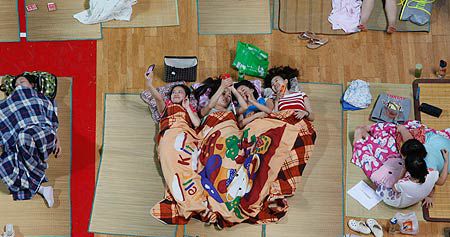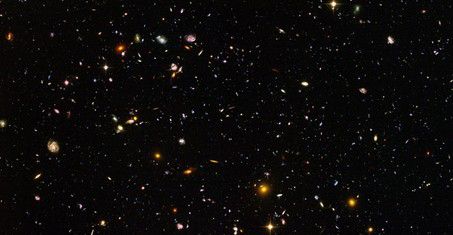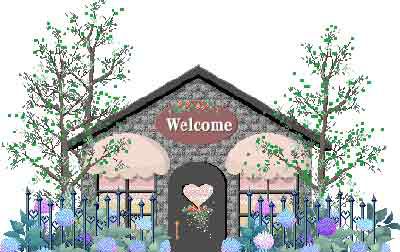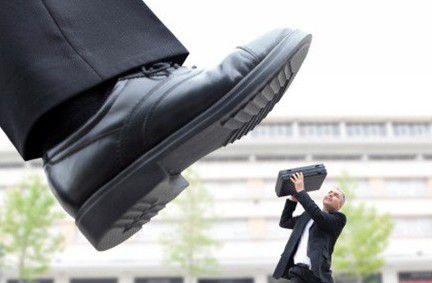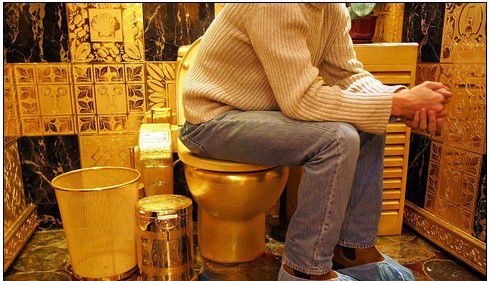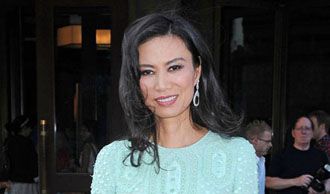February 7
|
Plans are being drawn up by London, Washington and Moscow for the final phase of the war against Germany. Leaders of the three countries, Prime Minister Winston Churchill, US President Franklin D Roosevelt and Marshal Joseph Stalin, have been meeting at a secret location in the Black Sea area. A statement issued this evening is the first official confirmation of the talks which are said to have begun three days ago. According to the statement issued by the Ministry of Information in London the purpose of the meeting is to complete plans for the defeat of the "common enemy" and to build firm foundations for a lasting peace. The three leaders, who are also accompanied by their chiefs of staff, foreign secretaries and other advisers, are said to have reviewed the latest information from all the battle fronts in Europe. The statement continued: "There is complete agreement for joint military operations in the final phase of the war against Nazi Germany. The military staffs of the three governments are now engaged in working out jointly the detailed plans." Discussions on how to secure a lasting peace have also been held. Topics likely to be considered are the occupation and control of Germany, the political and economic problems of a liberated Europe and proposals for an international organisation to maintain peace. A further communiqu?is to be issued at the conclusion of the talks. The statement gave no further details of the exact location of the meeting. But the Black Sea was considered an ideal choice as it gave Marshal Stalin easy access to Moscow and news from the eastern front. There has been some speculation the three leaders might appeal over the heads of the German leadership to the people themselves to get out of a "lost war". The German media has already issued warnings that any such appeal should be ignored as an attempt to undermine the fighting will of its forces. It seems likely much of the conference will be spent on working out the details of the administration of an occupied Germany. Already General Charles de Gaulle of France has declared his country would like to be involved. There is also the thorny issue of a Russo-Polish settlement as well as a need to get urgently needed food and other supplies distributed as quickly as possible. But today's ceremonies mark the cutting of her last ties to Britain. India's first president has been sworn in, replacing the Queen as the country's head of state, and the new constitution ratified. In the capital, Delhi, the day began with the 34th and last Governor-General of India, Chakravarti Rajagopalachari, reading out a proclamation announcing the birth of the Republic of India. The new President, Dr Rajendra Prasad, then took the oath of office. Dr Prasad was a key campaigner in the nationalist movement of Mahatma Gandhi, along with India's interim Prime Minister, Pandit Jawaharlal Nehru. The president then addressed the crowd first in Hindi, and then in English. "Today, for the first time in our long and chequered history," he said, "we find the whole of this vast land... brought together under thejurisdictionof one constitution and one union which takes over responsibility for the welfare of more than 320 million men and women who inhabit it." Dr Prasad then drove through the streets in his state coach, greeted by thousands of people along the way. The crowds were jubilant , but restrained - a marked change from the highly-charged atmosphere of August 15 1947, when the British finally left India. Then, there were scenes of total chaos as the police struggled to control the crowd, and riots broke out across the city. Over the next two years, hundreds of thousands died in the terrible violence that followed partition - the division of the British colony into two nations, the secular but Hindu-dominated India and the Islamic Republic of Pakistan. Then in 1948 the man who steered India to independence, Mahatma Gandhi, was assassinated. Today, the place where he was cremated on the banks of the River Jumna became a site of pilgrimage for thousands of people. Dr Prasad visited the spot soon after daybreak and joined in paying homage to the memory of the man now known as "the father of the nation". |

